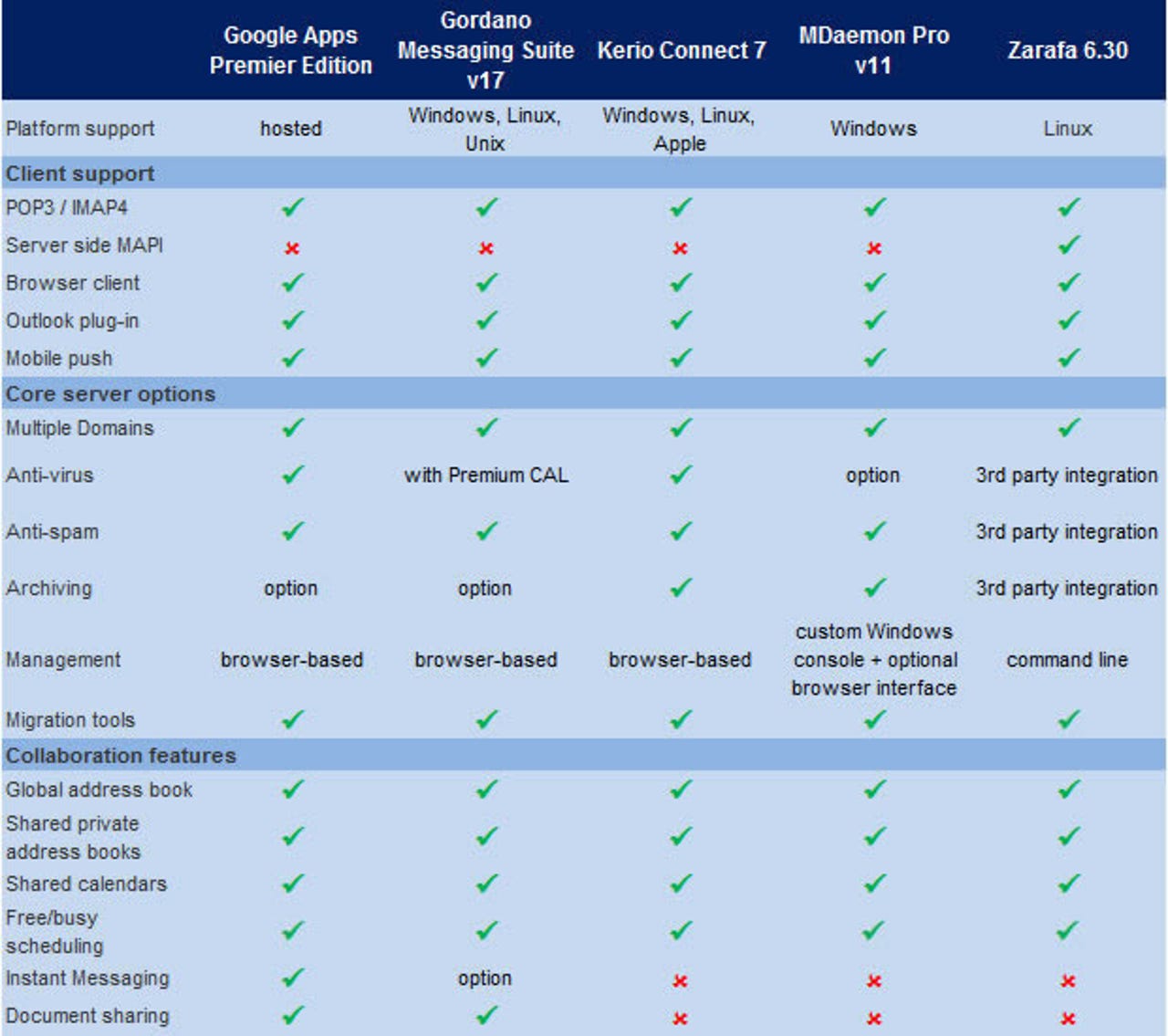Exchange alternatives: a group test

Widely viewed as synonymous with business-class email and collaboration, Microsoft's Exchange is far from the only fish in the messaging sea. Indeed, despite its clear market dominance, there are still plenty of alternatives, each capable of delivering much the same functionality — to the same clients, including Outlook users and mobile workers with wireless handsets.
These Exchange alternatives exist because they tend to work out cheaper, as well as being easier to both manage and support. At the same time, they deliver similar levels of scalability and robustness as the Microsoft original.
Two obvious candidates are IBM's Lotus Notes and Novell's GroupWise, both long-term thorns in Exchange's side. That said, we haven't included either product in this group test, mainly because they're rarely seen as like-for-like replacements and we're more interested in products designed to do what Exchange does without making it evident that something else is at work on the server.
To this end, we picked five somewhat less obvious alternatives. One (MDaemon Pro) is a fairly typical Windows-only solution, while Kerio Connect and Gordano Messaging Suite (GMS) can be deployed both on Windows and other hosts. We've also included an open-source product (Zarafa) written for Linux and, because of the increasing popularity of hosted services, Google Apps Premier Edition.
Each has its pros, cons and idiosyncrasies, as outlined below and detailed in the individual reviews, while at the same time sharing a common goal: to do what Exchange does, only more cost-effectively.
What we tested: summary of features

What we looked for
Our main aim when examining the various products was to gauge how effective each would be as an Exchange alternative for companies looking to either ditch Microsoft's email/communication server or install from scratch. In particular, we wanted to know whether they were easier to set up and manage than Exchange, whether they offered the same kind of collaboration support and whether users would notice much difference compared to the real thing.
As well as evaluating server configuration and management we tested both web-based and Outlook clients, as well as checking the level of mobile support and how the product handled things like antivirus and anti-spam protection. We also noted the completeness of each product, and the availability of migration tools, archiving support and so on.
What we found
Interestingly, emulation of Exchange's collaboration features was uniformly high across all of the products. That was true both with web-based clients and when using Outlook, with a plug-in required for the latter in each case. Indeed, if you were to compare the products purely on their collaboration features, you'd be hard pressed to come up with a clear leader.
There were, however, big differences between the web clients in terms of look and feel, and customisation. There were also huge differences in management, mobile access, security and other options.
In the end our favourite proved to be Google Apps Premier Edition, which we found incredibly quick and easy to deploy and a delight to use. Outlook integration is more than acceptable, while the Gmail web client more than makes up for any deficiencies here with its labels, conversations and search facilities. Mobile access, security and archiving options are all available too, and there's a burgeoning market of add-ons to work with it. Small companies will love Google Apps Premier Edition, not least because it frees them from hosting their own hardware and software, and the need to employ expert staff to manage it.
Of course, we appreciate that a hosted solution won't suit every business — larger organisations, especially, may still want a server of their own. Here it's not so easy to say what's best, but for most buyers we'd recommend Kerio Connect 7 which delivers a balanced mix of functionality in a scalable, easy to manage and very complete package.
Editors' ratings